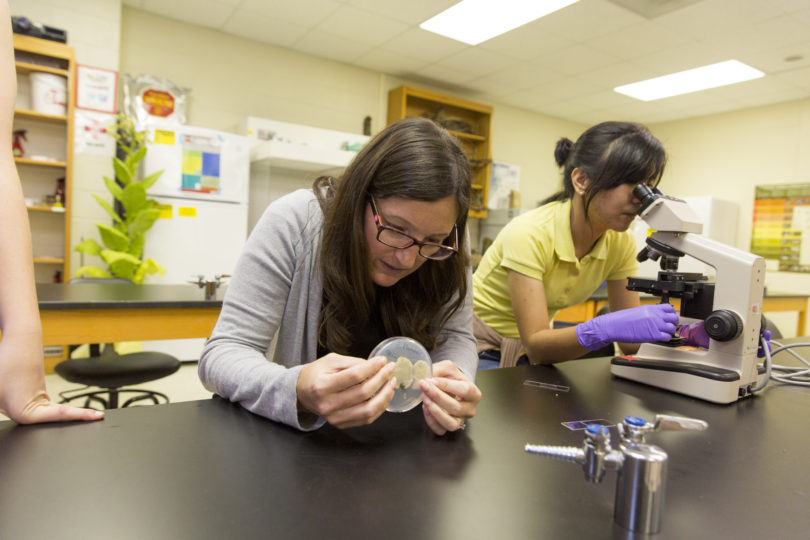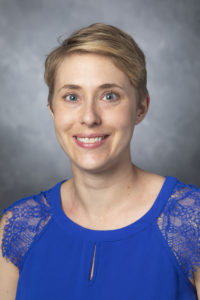One key to improving undergraduate education and student achievement across the STEM disciplines, as well as more broadly across the campus, is the integration of evidence-based teaching strategies – using what works most effectively for student learning.
Now, a University of Georgia faculty member will lead a five-year, national scale research and education project to better understand and support the use of evidence-based teaching in biology.
The project, led by assistant professor in the Franklin College of Arts and Sciences department of genetics Tessa Andrews, is funded by a recently awarded grant from the National Science Foundation CAREER program, which supports research and teaching by outstanding junior faculty.
The research aims to elucidate the teaching knowledge that is particularly important for using evidence-based instructional practices in large undergraduate courses. The educational initiatives will design and test a new model of teaching training for graduate students and will expand a video resource library for faculty who want to learn more about evidence-based teaching in science.
Active-learning instruction engages students directly in the learning process and has proven effective, but that effectiveness can vary considerably based on the instructor.
“The need is particularly acute for large biology courses,” said Andrews, whose team will collect data from biology instructors around the country. “The work will focus on the knowledge that college faculty need about teaching and learning to effectively plan and implement active-learning strategies in large classes.”
This knowledge goes beyond the specific knowledge of a discipline. It may include broadly applicable knowledge about adult learning and motivation, as well as knowledge about what undergraduates find particularly difficult in core topics of a discipline.
Supported by an earlier grant, Andrews’ team has already created a video library meant to be used by instructors anywhere. “It’s used by many teaching professional development programs and it shows real active-learning classrooms and what’s happening in them,” she said.
The library is called REALISE, Repository for Envisioning Active-Learning Instruction in Science Education, available online. The research team plans to add 10 new videos to this publicly available resource.
“We’ve developed some strong hypotheses about what kind of knowledge is important based on preliminary work, but this grant will allow us to take a close look at the knowledge used by an instructor and the kind of learning that it leads to for the student. And that’s the best kind of evidence of what knowledge is important,” Andrews said.









